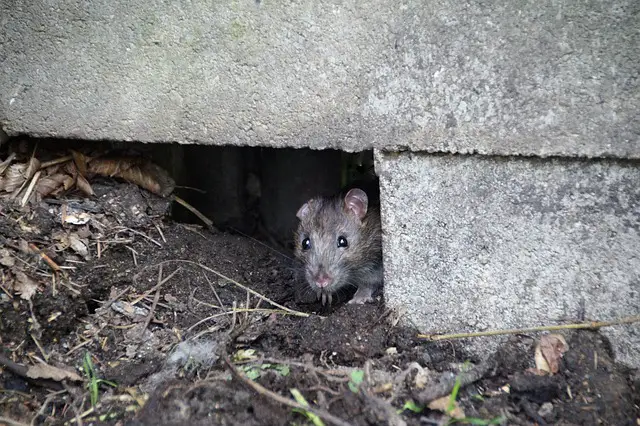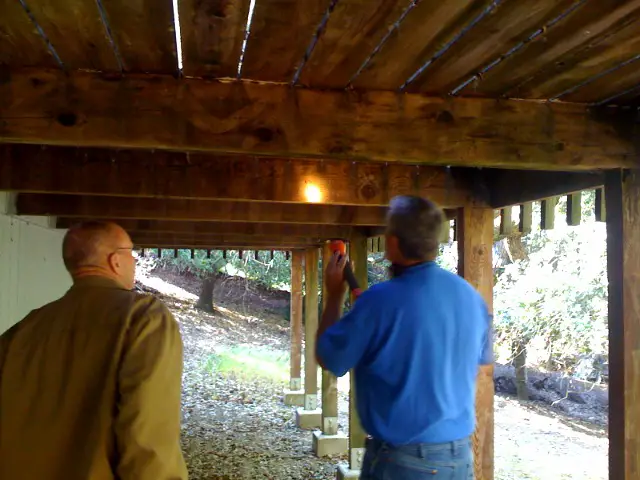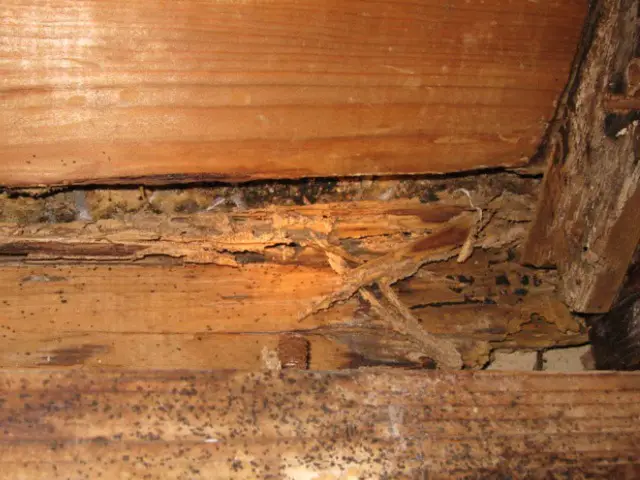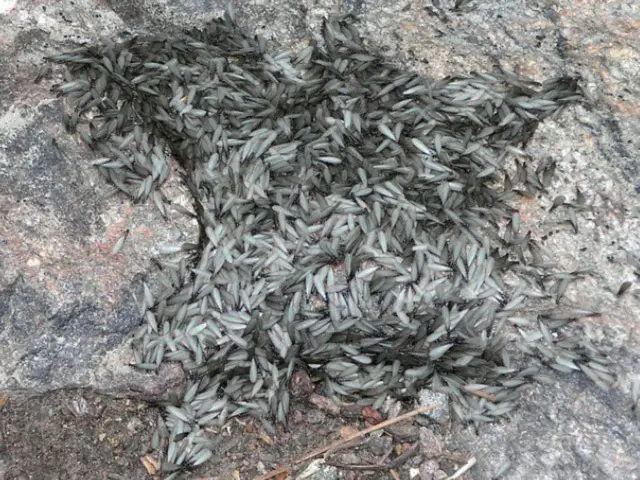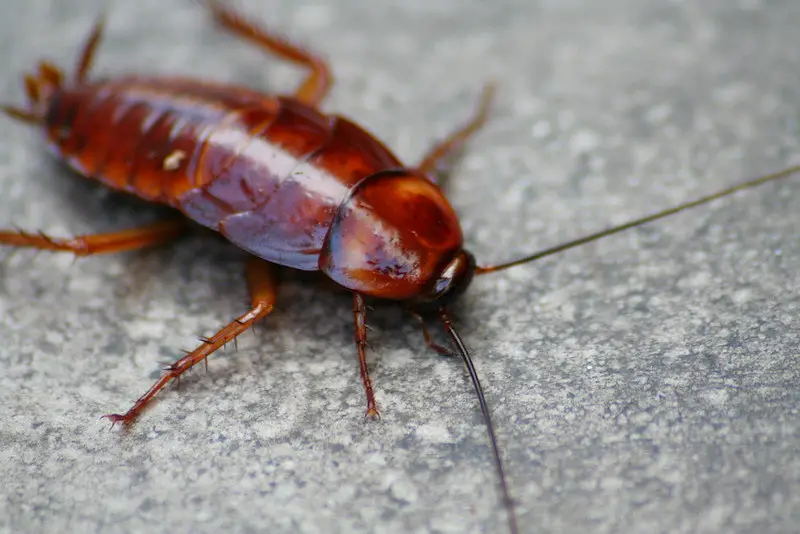Diseases Carried By Rodents
“Why all the fuss about rats and mice?” you may be asking. You hear and read stories in the news about the nuisance of rats and mice—but are they really that bad? Aside from the damage roof rats, pack rats, and mice will cause to the structure of your home or building; it is clear that these rodents carry diseases that can be both directly and indirectly transmitted to humans and our pets.
The diseases commonly carried by everyday rats and mice have the potential to be lethal. Such a threat to your home and family should be taken seriously. In the early 1990s, Northern Arizona saw a deadly outbreak of Hantavirus, which affected the four-corners region of the Southwest. When people’s lives are at stake, the utmost care should be taken to understand just how rodents could put the lives of our nearest and dearest at risk.
Related posts:
- Can Skunks Climb Fences?
- Effective Rodent Control
- Do Mice Eat Cockroaches?
- Can Dogs Eat Beetles?
- Will Cheese Attract Mice?
- Do Skunks Live Underground?
- How do you get rid of rodents in the attic?
- Why Mice Come Into Your House in the Summer?
What Scientists are saying about Rodent Diseases:
According to the world’s authority on health, the infectious disease experts of the Centers for Disease Control report that more than thirty-five diseases are carried and spread by rats and mice worldwide. In several states and our local communities, there are nearly a dozen diseases that local pack rats, roof rats, and mice carry and can spread to humans and our family pets.
The most common rodent-borne diseases you should be concerned about are Hantavirus, Salmonella, Lyme Disease, Rat-Bite Fever, Jaundice, Plague, Tularemia, Ricketts, and Typhus fever. The effect that these diseases can have on your health can range from a minor infection to death. These are just some of the diseases spread by roof rats, pack rats and mice in the region of the Southwestern states.
How rodent-borne diseases are spread?
Whether rodents live in Los Angeles, Las Vegas, San Francisco, or Phoenix, they all can spread infectious diseases the same way. Roof rats, pack rats, and mice each spread harmful diseases through their contaminated feces and urine and bite wounds inflicted by a diseased rodent. Humans and our pets are at risk whenever we breathe uncirculated air that contains dust particles from rodent droppings or areas with a heavy presence of urine.
It is very common in attics, basements, storage rooms, and garages to find dried feces and rodent urine, which may contain germs that can cause disease. Additional ways you can come in contact with harmful diseases is by drinking contaminated water or eating food with which an infected rodent has come in contact. Ticks, mites, mosquitoes, and fleas that have used rodents as hosts can also spread rodent-borne diseases with a bite to a human or pet.
Who is at risk of rodent-borne diseases?
All residents who come in contact with an infected rodent is at risk. The elderly populations who may have a weak or damaged immune system, infants, people with allergies or respiratory illnesses, and those who work in attics are especially susceptible. Our dogs, cats, birds, or anyone in the presence of roof rats, packrats, and mice may be at risk of diseases carried and spread by rodents.
If you have a rodent infestation in your home or other structure, contaminated urine or droppings may cause various diseases. If you have any reason to suspect that you have come in contact with an infected rodent, it is wise to speak with your trusted health professional. If you are currently experiencing the presence of roof rats, packrats, or mice, contact a local and licensed wildlife control and pest management professional immediately.
Mice and disease
Sanitation technology in most parts of the U.S. has advanced enough that homeowners do not usually have to worry about mice and rats that carry the bubonic plague, but there are still plenty of diseases that can be spread to humans by vermin infestation.
If you have a mice problem, you should be aware of the potential diseases they can carry and find an effective pest control company to eliminate the infestation before your family gets sick.
Vermin infestation and disease
The diseases spread by vermin infestation include rat-bite fever, salmonellosis, tularemia, hantavirus pulmonary syndrome and leptospirosis. If you do not recognize some of these diseases, then count yourself lucky. Many of them lead to fever, diarrhea, body aches, coughing, nausea and even death when untreated. Some of them are spread from mice to humans through direct contact, but people can catch some of these diseases simply by occupying the same space.
Get rid of mice and prevent disease
The best way to prevent diseases like hantavirus pulmonary syndrome from spreading to your family is to hire mice removal experts with extensive experience with this vermin infestation. If you keep the mice out of your house, then you do not have to worry that you or your children will pick up any diseases from them.
In addition, effective mice removal can prevent the spread of viruses and eliminate sources of bacteria that can lead to poor health in children and adults.
Natural pest and disease control
You have plenty of pest control experts to choose from, but it makes the most sense for you to hire a local pest control company that has worked in the area for many years and understands the nuances of your mice problem. There are different types of rodents that cause problems around the world. If you hire a pest control company based outside your city, you might not get the targeted mice removal services that work best in your region.
When you hire a local pest control company, though, you know that the professionals have been trained to deal with specific vermin infestation issues that are common to the American Southwest.
Ways to get rid of mice
When you contact a pest control company about mice removal, you should ask them what methods they use to eliminate mice problems. You can also ask them to give you references that list the names and contact information of others in the area that have hired them for mice removal services.
This is one of the best ways to determine which pest control company in your town has the experience to solve your mice problem for good before any diseases spread to your family.
Green pest control
Everyone is doing all they can these days to be kind to our earth while also saving money in these scary economic times. There are countless ways to make sure that your family is as “green” as possible by recycling and using energy-efficient light bulbs and maybe even driving a hybrid vehicle to save on gas.
Maybe you haven’t considered that this eco-friendly and frugal attitude can extend to something you may not think about too often, if at all: pest control.
Traditionally, pest control companies have been very focused on ongoing extermination. Ultimately, the more times a company services your home, the more money you spend and the more fossil fuel they burn in order to return to your home time and again. Thankfully, changing attitudes towards finances, our environment and animal welfare have generated wonderful new pest control options – particularly in situations where rodents are concerned.
Related post: “Can Skunks Climb?”
While it is still necessary to trap and remove animals from the home, once they have become a problem, it is now possible to prevent them from entering in the first place. Live trapping options are available and, in some cases, mandatory for native and protected species, which is a relief for those among us who prefer not to kill anything. Every home is different, and no two situations will be exactly alike, but permanent methods of exclusion are now available from forward-thinking pest and wildlife management companies.
Simply keeping rodents and other animals out of your home can save you years worth of pest control bills as well as the added expense of repair that any damage those animals may cause.
It doesn’t get any more earth-friendly than the exclusion methods because not only do they prevent problems with pests from happening in the future, but they are permanent. In most cases, once the process has been completed, rodents and technicians will never return. Exclusion involves sealing shut any and all areas through which an animal may enter the home.
The open areas may be responsible for drafty areas of the house – especially those near doorways, windows, and utility gaps – and once they are closed off, you will find that not only can animals no longer enter, but neither can hot or cold air that you wanted to keep out, to begin with! Beyond improving your home’s energy efficiency, this method is also the most humane possible means of pest control. That which does not enter need not be exterminated.
Pests often damage the insulation in the attic and inside walls. Insulation is wonderful nesting material for rodents of all kinds. Areas such as attics, where insulation is usually found, are a favorite shelter for many common animal species found in residential locations. Insulation can become matted down, torn up, pulled out and rendered virtually ineffective.
This sort of destruction will become most obvious in your heating and cooling bill. It may be years before you realize there is any problem with your attic’s insulation. Preventing access to these areas of the home assures that your house will be as energy-efficient as possible by allowing insulation to do its job. Once you realize that damage has been done, insulation should be cleaned and re-fluffed or replaced entirely depending on the extent and type of damage done.
Your local wildlife management professional may be able to make recommendations on how to take care of this problem and can make eco-friendly recommendations.
Many pest control companies encourage a monthly spraying program for insects such as ants, spiders and the notorious roach. This may be necessary for some situations; however, most households do not require treatments quite that frequently and will benefit a great deal from seasonal treatments as needed. Most commercial-grade pesticides are safe to use around children, pets, and even food, and most are residual, which means that they can remain effective long after they have been applied.
Ask your local pest control professional about these long-lasting chemicals to determine exactly how often you should treat your home. Cutting back on these treatments as well as using the aforementioned exclusion methods for rodents and other animals reduces carbon emissions from the trucks driven to the home for service while still keeping pests in check.
